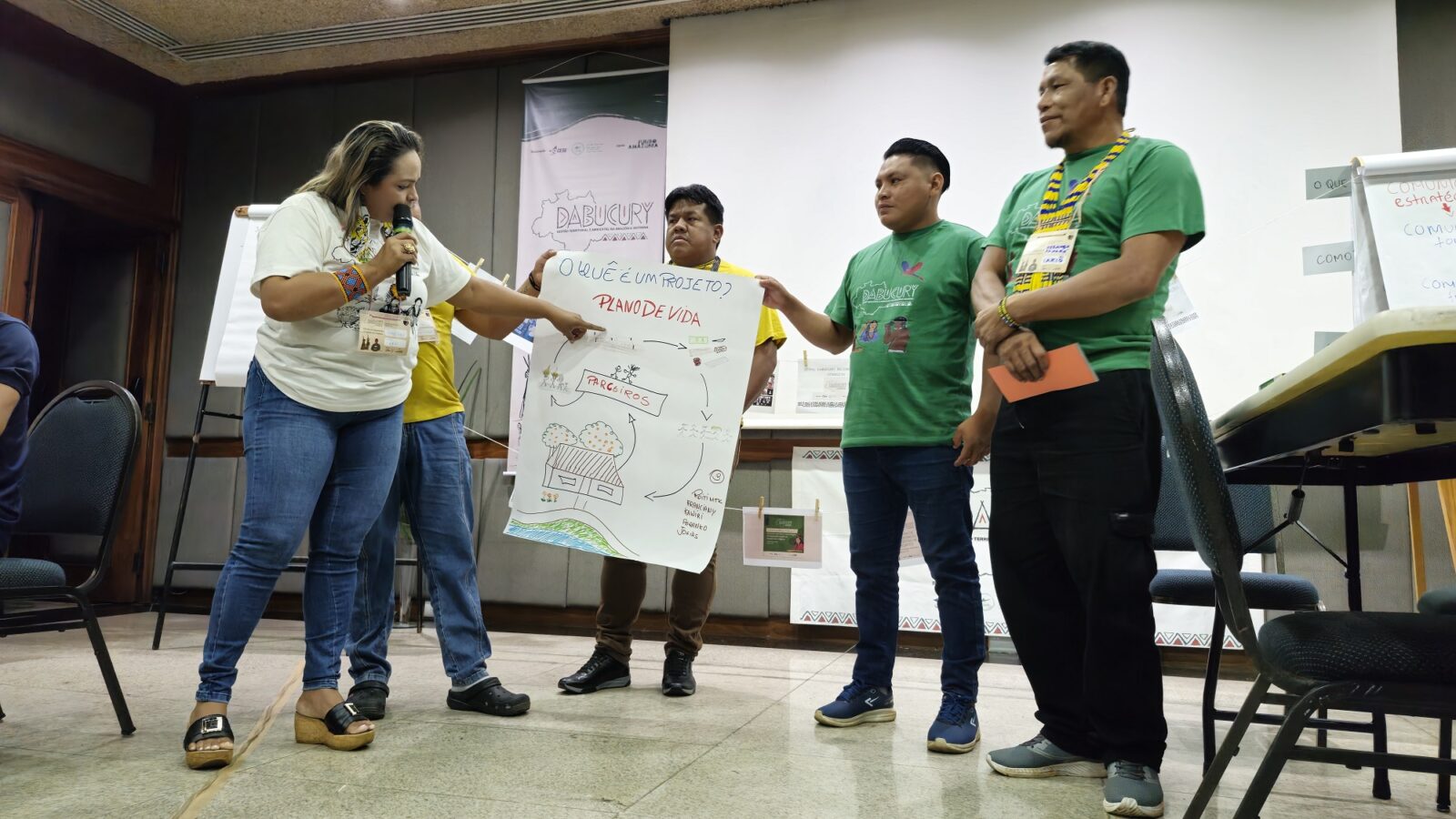Initiative encourages the empowerment and political engagement of black women
20 de July de 2024

In the month we celebrate the 12th edition of Black Women’s July, a collective agenda developed by Odara, the Black Women’s Institute in Bahia, which involves other black women’s organizations, highlights essential black women’s initiatives in the fight against racism and sexism, structural elements of Brazilian society. This agenda refers to July 25, the International Day of Afro-Latin American and Caribbean Black Women and National Tereza de Benguela Day.
Through training and an advocacy agenda, activities were carried out in quilombola communities in the state of Bahia, aimed at discussing and proposing social transformations based on reflections about social and political empowerment in the lives of urban and quilombola black women. A group of women, of different ages and from different communities in the state of Bahia, came together to promote understanding and provide an interpretation of the experiences of these black women. Organized by the Rota dos Quilombos Collective, the Renascer Institute and the Association for the Protection of the Disadvantaged (SPD), the activity was supported by CESE through its Small Projects Programme.
SEE WHAT THEY SAY ABOUT US
In the name of historical and structural racism, many people look at us, black women, and think that we aren’t competent, intelligent, committed or have no identity. Our experience with CESE is different. We are a diverse group of black women. We are in varied places and have varied stories! It’s important to know this and to believe in us. Thank you CESE, for believing in us. For seeing our plurality and investing in us.
Over these 50 years, we have received the gift of CESE’s presence in our communities. We are witness to how much companionship and solidarity it has invested in our territories. And this has been essential for us to carry on the struggle and defence of our people.
CESE was set up during the most violent year of the Military Dictatorship, when torture had been institutionalized, when arbitrary imprisonment, killings and the disappearance of political prisoners had intensified. The churches had the courage to come together and create an institution that could be a living witness of the Christian faith in the service of the Brazilian people. I’m so happy that CESE has reached its 50th anniversary, improving as it matures.
When we hear talk of the struggles of the peoples of the waters, of the forests, of the semi-arid region, of the city peripheries and of the most varied organizations, we see and hear that CESE is there, at their side, without replacing the subjects of the struggle. Supporting, creating the conditions so that they can follow their own path. It is this spirit that we, at ASA, want you to maintain. We wish you long life in this work to support transformation.
I am a macumba devotee, but I love being with partners whose thinking is different from ours and who respect our form of organization. CESE is one such partner: it helps to build bridges, which are so necessary to ensure that freedom, diversity, respect and solidarity can flow. These 50 years have involved a lot of struggles and the construction of a new world.
You have to praise CESE’s capacity to find answers so as to extend support to projects from traditional peoples and communities, from family farming, from women; its recognition of the multiple meanings of the right to land, to water and to territory; the importance of citizenship and democracy, including environmental racism and the right to identity in diversity in its discussion agenda, and its support for the struggles and assertion of the values of solidarity and difference.




















